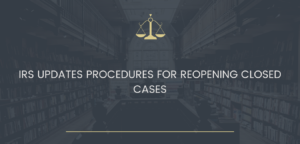Clarification of Tax Treatment of Covered Loan Forgiveness

Clarification of Tax Treatment of Covered Loan Forgiveness
CARES Act Sec. 1102 provides that a recipient of a PPP loan may use the loan proceeds to pay payroll costs, certain employee benefits relating to healthcare, interest on mortgage obligations, rent, utilities, and interest on any other existing debt obligations. If a PPP loan recipient uses their PPP loan to pay those costs, they can have their loan forgiven in an amount equal to those costs. PPP loan forgiveness doesn’t give rise to taxable income and the Code generally doesn’t allow a taxpayer to deduct expenses that are paid with tax exempt income.
New law
COVIDTRA clarifies taxpayers whose PPP loans are forgiven are allowed deductions for otherwise deductible expenses paid with the proceeds of a PPP loan, and that the tax basis and other attributes of the borrower’s assets will not be reduced as a result of the loan forgiveness. (CARES Act section 1102 as clarified by COVIDTRA Sec. 276)
Effective date
This provision is effective as of the date of enactment of the CARES Act.
AS of December 21, 2020, more details of recent COVID-19 tax related developments: https://rules.house.gov/sites/democrats.rules.house.gov/files/BILLS-116HR133SA-RCP-116-68.pdf
Other points of interests:
Business Meals Fully Deductible in 2021 and 2022
Employee Retention Tax Credit and Paid Sick/Family Leave Credits
Charitable Contributions
Extension of Certain Deferred Payroll Taxes
From the FTB site 03/23/2022:
On September 9, 2020, Assembly Bill (AB) 1577 (Coronavirus Aid, Relief, and Economic Security (CARES) Act Conformity) was enacted which allowed an income exclusion for tax years beginning on or after January 1, 2020, for forgiven PPP loans.
On April 29, 2021, AB 80 (Consolidated Appropriations Act (CAA) Conformity) was enacted which allowed the additional income exclusion for second draw PPP loans and Economic Injury Disaster Loan (EIDL) advance grants and allowed the deduction of expenses, basis adjustments, and tax attribution adjustments for qualifying taxpayers, for tax years beginning on or after January 1, 2019.
The American Rescue Plan Act (ARPA) (Public Law 117-2) was enacted on March 11, 2021. The ARPA expanded the PPP to include certain nonprofit entities and certain internet publishing organizations. California law does not conform to this expansion of PPP eligibility.
The Paycheck Protection Program Extension Act (PPPEA) (Public Law 117-6) was enacted on March 30, 2021, and extended the covered period of the PPP from March 31, 2021, through June 30, 2021. California law does not conform to this extension and does not allow an exclusion from income for PPP loans made after March 31, 2021.
On February 9, 2022, Senate Bill (SB) 113 (Economic Relief) was enacted to allow an income exclusion for Shuttered Venue Operator (SVO) grants provided under CAA for tax years beginning on or after January 1, 2019 and for Restaurant Revitalization Fund (RRF) grants provided under ARPA for taxable years beginning on or after January 1, 2020. SB 113 also allows the deduction of expenses, basis adjustments, and tax attribution adjustments for qualifying taxpayers for SVO and RRF grants.
Income exclusion
For California purposes, forgiven PPP loans, SVO grants, and RRF grants are excluded from gross income. However, this does not include PPP loans forgiven under the PPPEA.
Deductions and other adjustments
AB 80
To qualify for expense deductions, basis adjustments, and lack of reduction of tax attributes related to AB 80, you must meet the following qualifications.
- Your business cannot be publicly traded
- You meet the 25% gross receipts reduction qualifications
If your forgiven loan relates to an EIDL Grant or Targeted EIDL Advance, you are not required to meet these qualifications to deduct expenses.
SB 113
To qualify for expense deductions, basis adjustments, and lack of reduction of tax attributes related to an SOV grant under SB 113, you must meet the following qualifications.
- Your business cannot be publicly traded.
- You meet the 25% gross receipts reduction qualifications.
If your forgiven loan relates to an RRF, you are not required to meet these qualifications to deduct expenses.
The treatment of deductions, basis, and tax attributes for California income tax purposes may differ from the federal income tax treatment. For federal qualifications regarding income tax treatment, visit Coronavirus Tax Relief for Businesses and Tax-Exempt Entities.
25% reduction from gross receipts
California conforms to the federal gross receipts test requiring a 25% or greater reduction in gross receipts and will therefore follow the rationale of this related federal guidance.
For additional information, visit Section 311 of the CAA, 2021, Revenue and Taxation Code (RTC) section 17131.8(g)(3)), and Small Business Administration (SBA) guidance.
For additional information on the RRF grants, visit Section 5003 of the ARPA, RTC 17158.2(a), and SBA guidance.

We hope you found this short article about recent tax clarifications of tax treatment and the PPP loan forgiveness program helpful. For more information, talk to your tax advisor to see what else you can or should do to protect yourself and take full advantage of the unique opportunities provided by PPP loans. If you have additional questions or need expert tax or family office advice that’s refreshingly objective (we never sell investments), please contact us at Info@GROCO.com or visit www.GROCO.com. Unfortunately, we no longer give advice to other tax professionals gratis.

A proud sponsor of the American Dreams Show. Find your path in life to success and happiness…

Tax Preparation Help: 5 Tax Deduction Myths
Tax Preparation Help: 5 Tax Deduction Myths By Ronn Espy There are a wealth of tax deduction myths, rumors and plain old wives tales during every tax season. Many opt not to get professional tax preparation help and file their own taxes based on misinformation, only to regret it later when the IRS comes calling.…
Is The IRS Above the Law?
Is The IRS Above the Law? By Alan Olsen, CPA, MBA (tax) Managing Partner Greenstein Rogoff Olsen & Co. LLP Have you ever wondered how the IRS truly operates? Have you ever contacted someone from the IRS with a tax problem or question and discovered that the person on the other end of the line…
IRS Updates Procedures for Reopening Closed Cases
IRS Updates Procedures for Reopening Closed Cases IRS issued Rev. Proc. 2005-32 On May 20, 2005, the IRS issued Rev. Proc. 2005-32, which updates procedures for reopening closed examinations under §7605(b) and describes when a case is deemed closed after examination. It also provides a nonexclusive list of contacts and actions by the IRS that…
Year-End Tax Tips For Investments
Year-End Tax Tips For Investments By Glenn Dahlke Yes, its that time of year again, time for every financial column to drum into your head all the year-end investing tax tips. It’s the equivalent of your list to Santa. You either take care of it by year-end or you take your chances. Consider yourself warned.…




